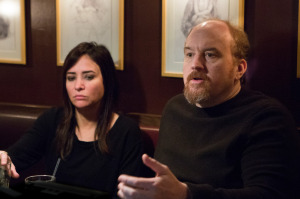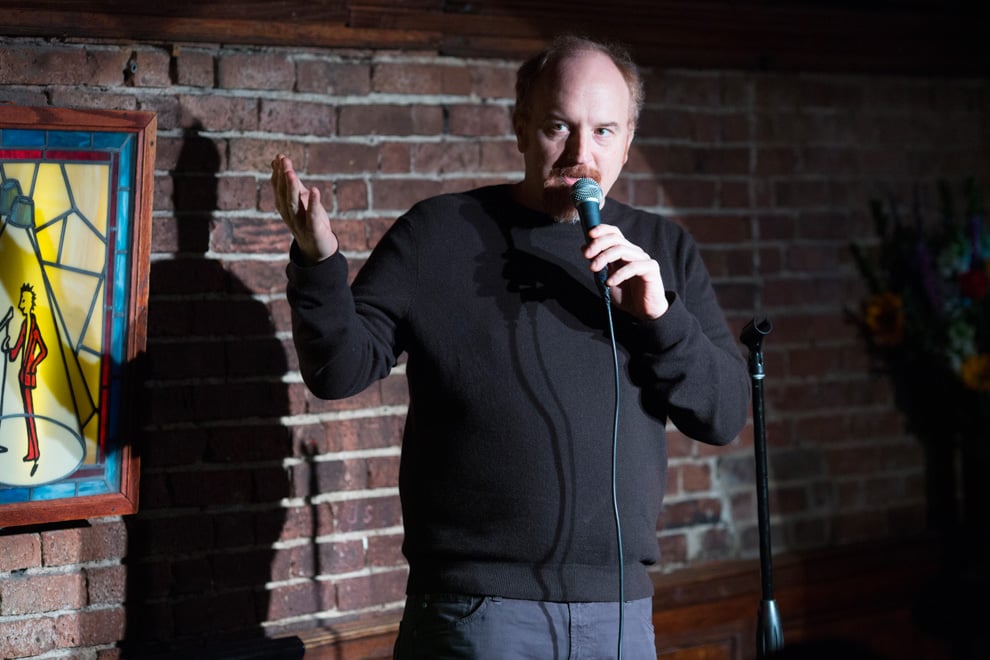
After three wildly successful seasons of his show “Louie,” in which he plays a character based on himself, stand-up comedian and writer-editor-director-star Louis C.K. needed time to recharge creatively. The show went on hiatus for a year and a half.
This revolutionary surrealist dramedy garnered great critical acclaim for rewriting the television storytelling conventions. “Louie” has always been free from the grip of the television half-hour. Past episodes have been kaleidoscopically packed with short vignettes examining the mind of the titular main character, a fictionalized version of C.K.
So on its return this summer, “Louie” met an imposing wall of anticipation and expectation head-on. But in its fourth season, the show continues its exhilarating experiments with format and theme, actively challenging its own status as a critical darling.
In season four, C.K. explores new territory by blending episodes together into lengthier, indivisible narratives. The six-part tour de force “Elevator” doesn’t play out episodically. Instead, its stories weave in and out of each other, binding the six episodes together tightly into a full-fledged feature-length whole. Louie’s challenges and history with his ex-wife Janet (Susan Kelechi Watson) bleed into his bafflement with his youngest daughter Jane (Ursula Parker), which in turn bleeds into his courtship of the non-English-speaking Amia (Eszter Balint).
In past seasons, the ceaseless kaleidoscope of vignettes brought along with it a kaleidoscope of ideas that ricocheted off of each other but never quite congealed. But in season four, forethought and careful organization help slow the show’s messy kinetic energy into an unhurried, meditative style. C.K. clearly took advantage of his time off to meticulously map out the thematic structure of season four. He now has more space to properly interrogate his faults and pathologies.
C.K. puts Louie’s relationships with women under the microscope. Whether it’s through the impassioned speech delivered by Louie’s overweight date (Sarah Baker) in “So Did the Fat Lady,” or Louie’s pursuit of an old flame (Pamela Adlon) in “Pamela,” Louie is alternately submissive, lost, dominant and dangerous before the women in his life. “Elevator” is the jewel, the crystallized thematic centerpiece, shining in the middle of this thread.

“Louie” puts its quixotic hero’s mind on display more lucidly and vividly than ever before, and it’s sometimes disconcerting. In both “Model” and “Pamela,” Louie uses force against women in a way that is both morally ambiguous and unsettling.
In the hands of a lesser writer, these moments could be labeled sloppy mishaps. But a writer of C.K.’s caliber and thoughtfulness wouldn’t make such blunders. C.K. has never been satisfied or complacent, and the uniform wave of critical acclaim for “Louie” likely gave him an uncomfortable itch. He finds his alter ego Louie to be a convenient medium for challenging this hero worship. Louie is far from perfect, C.K. seems to say, and I’m far from perfect, too.
Season four of “Louie” finds series creator C.K. unsatisfied with simply testing the limits of television as a form. C.K. goes beyond stretching format and theme, aiming past the fourth wall to challenge the good graces of his audience. C.K. might hate to hear it, but his artistry has reached new heights.
Contact Alex Cheng at aexcheng ‘at’ stanford.edu.
